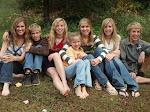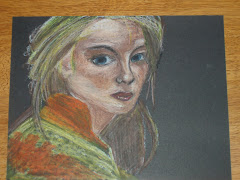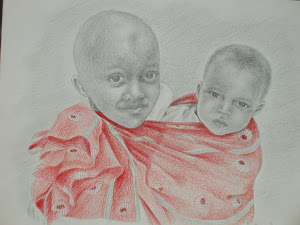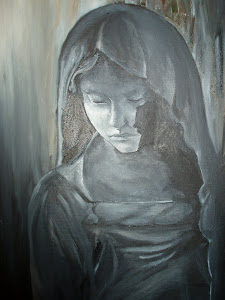
Fraction Jugglers is what I'm using with the boys. We've been using the wooden fraction puzzle that is shown below to check our work, sort of like how cusinaire rods are used with whole numbers. It's funny that I need to use the puzzle more than they do because they seem to be able to picture it better in their heads. I have some other fraction games with the set of games I bought from Right Start Math and I'll be pulling those out too in order to add some variety.
I got this Fraction Action book from the library and I read it to Annalise. I was amazed at how much fraction knowledge she picked up from this one title. Abel sat in on it too and was saying, "Aw. She's learning about fractions too? That's not right. I'm four years older than she is!" I tried to explain that I was starting to look at studying math the way we study history. We are all learning about Ancient Rome together aren't we? Why not do the same with math topics? Of course, there will be different levels of understanding but why not all play with fractions together?

Here is a picture of the fraction puzzle I bought from Right Start. Annalise just played with it one day with no help from me and the next day she was explaining to me how fractions get smaller when the bottom number gets bigger. She explained in excited tones how 1 was bigger than 1/10. She continued to expound on how it was the opposite of counting with regular numbers and that is why they were called fractions.
Thanks to Julie at the Living Math site and the accompanying email list, I'm seeing numbers in a whole different light. I look forward to trying more resources and enjoying our mathematical adventure. I'll continue to post things that we use and enjoy here in hopes that it will encourage others to step out of the workbook/textbook box and have fun learning!






2 comments:
Thanks! I'm a math misfit. I've always gone the long way through a problem because I didn't know a formlua or couldn't remember facts. Math-U-See has been great in helping me grasp concepts. Do these books/games (and the ones you mentioned in the previous post) go pretty well with MUS? Do you use them in addition (no pun intended) to MUS?
You can use these things along with any curriculum. Even if they present a different way of doing things than MUS, it's good for the kids to see there's more than one path to the answer. I'm not using any one curriculum right now but mixing lots of things and having fun.
Post a Comment